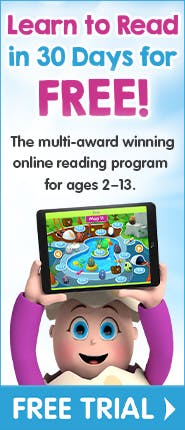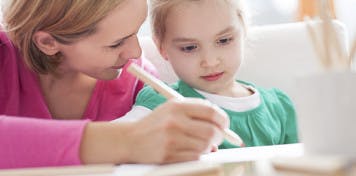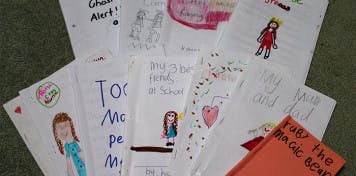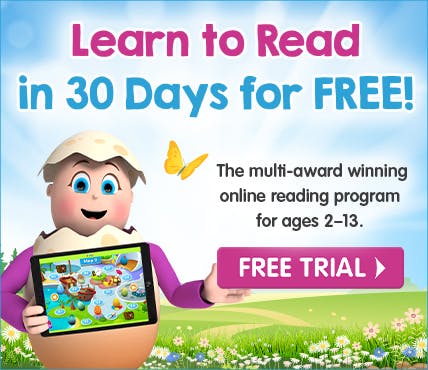


5 Tips to Help Your Child Write the Perfect Poem
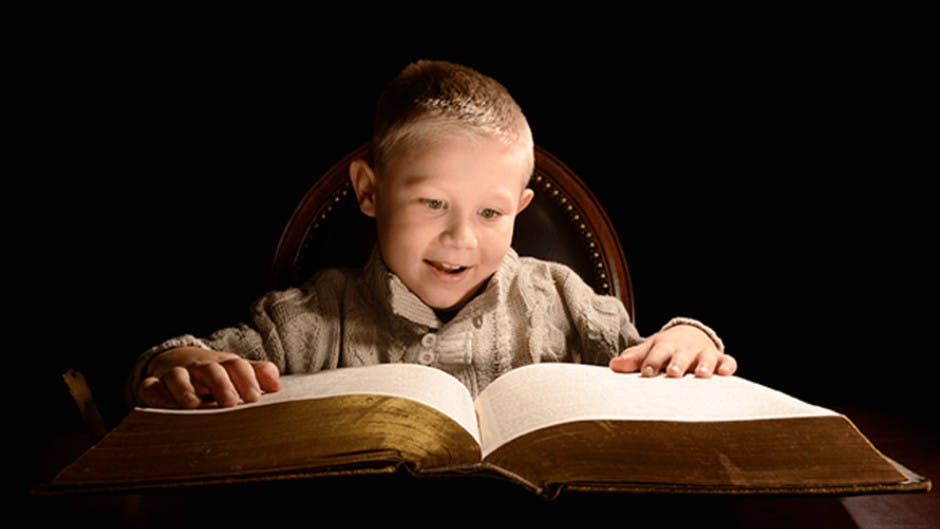
Helping your child write a poem should be fun activity for all! Find illustrated poetry books for kids in the Reading Eggs online library. Free trial
Poetry and children fit exceptionally well together. The natural rhythm and rhyme of children's poems make them highly enjoyable to read and listen to. Children's poetry also offers wonderful opportunities for reading, writing, speaking and listening practice.
For young children, reading poetry aloud nurtures their enthusiasm for words and gives them the tools they need to become avid readers.
By emphasising the sounds and rhythms of language, poetry strengthens children's phonemic awareness, which lays the foundation for early reading.
The often creative and abstract use of language in poems can also introduce children to new words and literary concepts.
For older children, poetry is a wonderful way to learn how complex thoughts, emotions, ideas and narratives can be expressed with the help of a few skilfully chosen words.
Here are five ways to help your child learn to not only write a poem but read and enjoy poetry as well!
1. Read poetry aloud
Reading aloud to your child, no matter how young they are, is a great way to introduce them to poetry.
By placing emphasis on the rhymes and sounds of the words you are allowing them to experience the rhythm and tones of the language.
If your child is old enough, you can encourage them to read aloud to you, which helps them to develop their pronunciation and reading fluency.
2. Choose the right poems
For younger children, choose playful, rhyming poetry about topics that are familiar and of interest to them.
Some great examples for younger children are Dr Seuss and Shel Silverstein, who often combine poetry with silly sounds and concepts that are hugely entertaining and relatable to young children.
For older children who already have a strong grasp on phonemic awareness, you can explain that poetry doesn't always have to rhyme.
There are many poems written especially for children, such as the works of Jack Prelutsky and Nikki Giovanni.
3. Encourage metaphors and similes
Metaphors and similes are powerful literary techniques used in a great majority of poetry.
By encouraging metaphorical thinking in your child, you can help them build new connections between objects, concepts and ideas, and help them think more creatively when it comes to writing their own poems.
When your child is telling you a story about their day, encourage them to think metaphorically by asking questions like, “as beautiful as what?” and leading questions like, “as beautiful as sunshine?” or “as beautiful as a butterfly fluttering its wings?”
If they're old enough, have them point out the metaphors and similes in a poem and encourage them to include some when writing their own poems.
4. 'I Am' Poem
The 'I Am' poem is a fun and simple way to introduce children to writing poetry, because it allows them to focus on their own attributes.
The 'I Am' poem is made up of three stanzas that include six lines each.
The beginning of each line is already written, and the writer fills in the end by inserting specific words.
Begin the first line for your child with 'I am' and have them write two special characteristics about themselves.
Then begin the remaining lines with prompts such as 'I see', 'I feel', 'I pretend', 'I wonder', 'I understand', 'I try' and so on.
Close the poem by repeating the first line in the last.
5. Acrostic poem
An acrostic poem is another type of poem ideal for introducing young children to writing poetry.
Acrostic poems are very easy to write and can be about any subject.
The simplest form is to put the letters that spell your subject down the side of the page.
When this is done, go back to each letter and think of a word, phrase or sentence that begins with that letter and describes your subject.
You can encourage your child to write about themselves, their favourite sport or things they see around the house.
Explore poetry books for kids in Reading Eggs for FREE!
Reading Eggs includes hundreds of online lessons that build essential phonics and phonemic awareness skills and features over 4,000 e-books, including poetry, for young children.
For more creative writing tips and ideas, check out our other articles:
Homemade Books are a great way to nurture their creativity and you'll end up with a wonderful keepsake to treasure. Encouraging your child to make their own books has many educational and emotional benefits.
